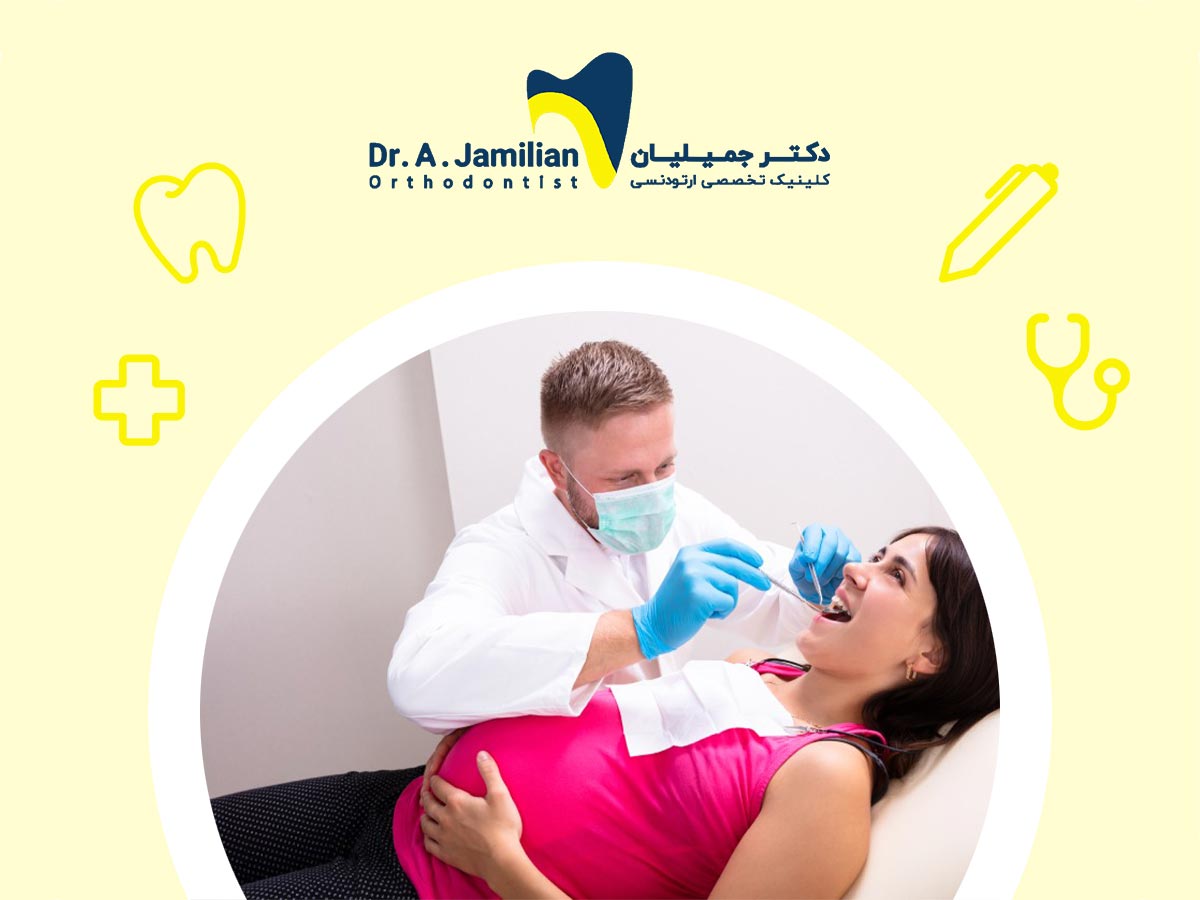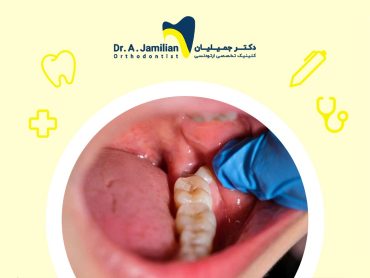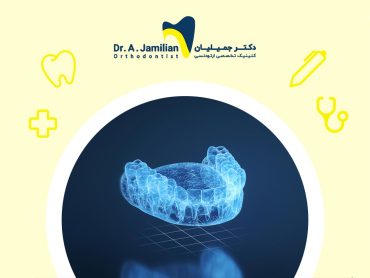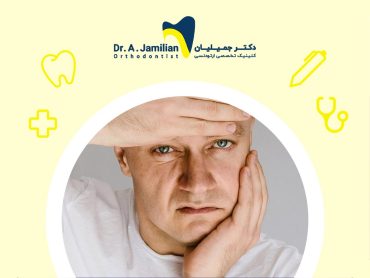Tooth decay and severe pain are among the top problems pregnant women may encounter. A common concern is whether to go to a dentist’s clinic during pregnancy. In this article from Dr. Jamilian’s website, we will be discussing the most optimal timing for dental care during pregnancy. For further details, please continue to follow our updates.
Exploring the reasons behind toothache during pregnancy
Interestingly, dental issues during pregnancy are more common compared to non-pregnant conditions. For instance, the risk of tooth decay during pregnancy is much higher than at other times. Here are some of the most frequent causes of toothache during pregnancy:
- Hormonal changes increase the level of hormones in the body. Increased blood flow, leads to an increase in stomach acid volume and nausea or vomiting associated with these hormonal changes can contribute to tooth decay.
- In most cases, calcium deficiency in expectant mothers leads to weakened teeth and increased susceptibility to decay and cavities.
- Occasionally, neglecting the treatment of decayed teeth before pregnancy leads to the vulnerability of the teeth and accelerates the decay process.
- Inflection and swelling of gums are also common causes of toothache during pregnancy.
Despite restrictions on treating toothache during pregnancy, specialized dentists may analyze the patient’s condition and proceed with treatments, such as pulpotomy root canal procedures, and even tooth extraction during pregnancy.
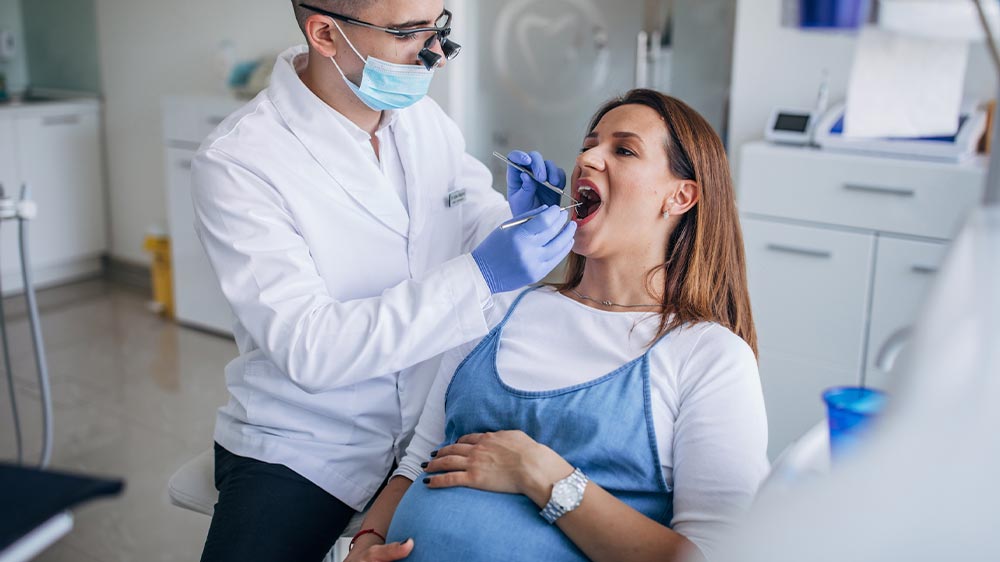
Best month to visit the dentist during pregnancy
During the first trimester of pregnancy, fetal organs begin forming. Throughout this, pregnant women may experience severe sensitivity and cravings and are not recommended to visit a dental clinic. Note that this does not mean that you have to endure severe toothache and cause discomfort to yourself.
Addressing overall issues before attempting to get pregnant is recommended, and if you have a decayed tooth, make sure to receive dental restoration and treatment. Dentists recommend visiting a pregnant woman during the second trimester. This is when the fetal organs are formed and the risk of miscarriage decreases. Conversely, the last three months of pregnancy are generally not ideal for dental visits. Pregnant women often find it challenging to lie comfortably on the dental chair during this period. Dentists typically advise mothers to focus on their dental health after delivery.
As mentioned above, addressing gum disease and tooth decay before pregnancy is the most effective prevention method. However, certain dental treatments like orthodontics are not problematic during pregnancy, and women can continue such treatment under the guidance of a professional and skilled specialist.

Visiting the dentist in the first trimester of pregnancy
It is advisable to avoid medications such as painkillers, antibiotics, and other prescriptions typically used for toothache during the first three months of pregnancy. It’s important to note that any radiation exposure is dangerous up to 13 weeks (about 3 months) gestation. If you have a dental visit during this time, the dentist will attempt to diagnose the extent of tooth decay and infection. In cases where the patient’s dental health is in pressing condition, emergency procedures will be used. We advise considering the following matters during the first trimester:
- Avoid consuming hot and cold food consecutively.
- Avoid acidic food during pregnancy.
- Take calcium under the guidance of your doctor and maintain a balanced diet.
- Include dairy products and nutritious food in the diet, as they contribute to better oral and overall health during pregnancy.

Visiting the dentist in the second trimester of pregnancy
The best time to visit the dentist during pregnancy is in the fourth, fifth, and sixth months. During this period, the fetus has reached a healthy weight, allowing for tooth restoration, root canal treatment, and tooth extraction, among many others. Keep in mind that X-rays and radiographs are prohibited during this period. However, in situations requiring sensitivity, it is possible to use reliable lead coatings while closely supervising the image capture process.
If you’re considering cosmetic dentistry procedures during this time, it is best to postpone the treatment until after delivery. Deep root canal treatment, tooth extraction, implants, gum surgery, and similar procedures are best performed when a person is in normal conditions before or after pregnancy.
Visiting the dentist in the third trimester of pregnancy
In the seventh, eighth and ninth months of pregnancy, the fetus will be fully developed, and the mother finds it challenging to sit comfortably. During the last months, you can maintain dental check-ups, and you can improve your oral health through prevention and the proper use of mouthwash.
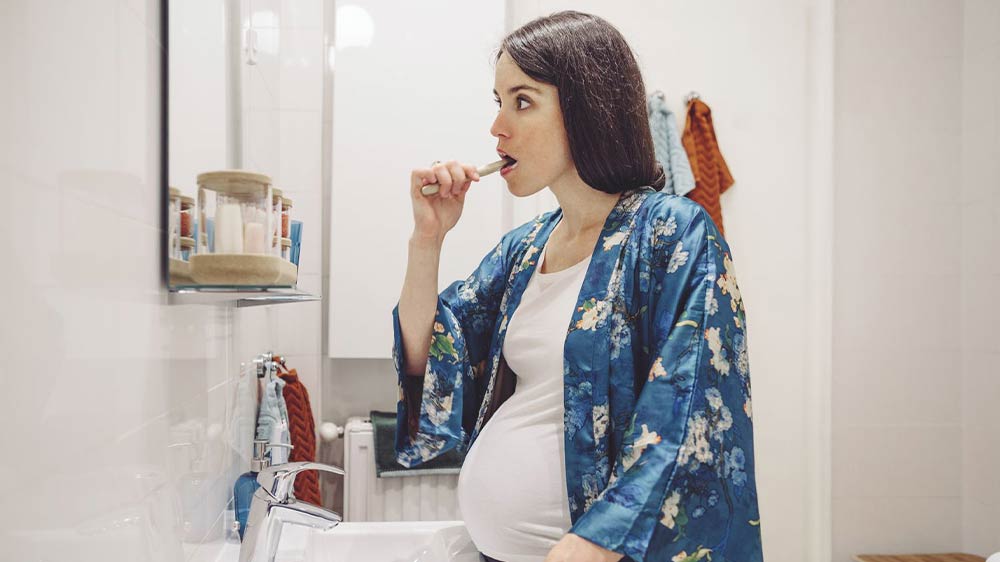
In this article on Dr. Jamilian’s website, we addressed the ideal timing for dental care during pregnancy. Now you have a complete understanding that dental visits can be scheduled at any time during pregnancy to monitor the condition of the teeth. However, it’s vital to be mindful of dental treatment limitations during pregnancy.
The best time for dentistry during pregnancy FAQ
Dental radiography and the use of X-rays during pregnancy, especially in the first trimester, are not recommended because they are dangerous for the fetus. If it is necessary to prepare a dental radiograph, it is better to do it after the 13th week of pregnancy under the supervision of a medical specialist.
Tooth filling does not cause problems in pregnant women, but postponing it until after the 13th week of pregnancy is advisable. In addition, it is necessary to consult with your dentist regarding the different filling methods and materials (tooth-coloured composites or amalgam) to choose the best solution.
If tooth extraction is required, it is recommended to schedule the procedure for the second trimester. This is because during the first trimester, the vital organs of the fetus are developing, and the use of medications and antibiotics may pose risks to the fetus.
